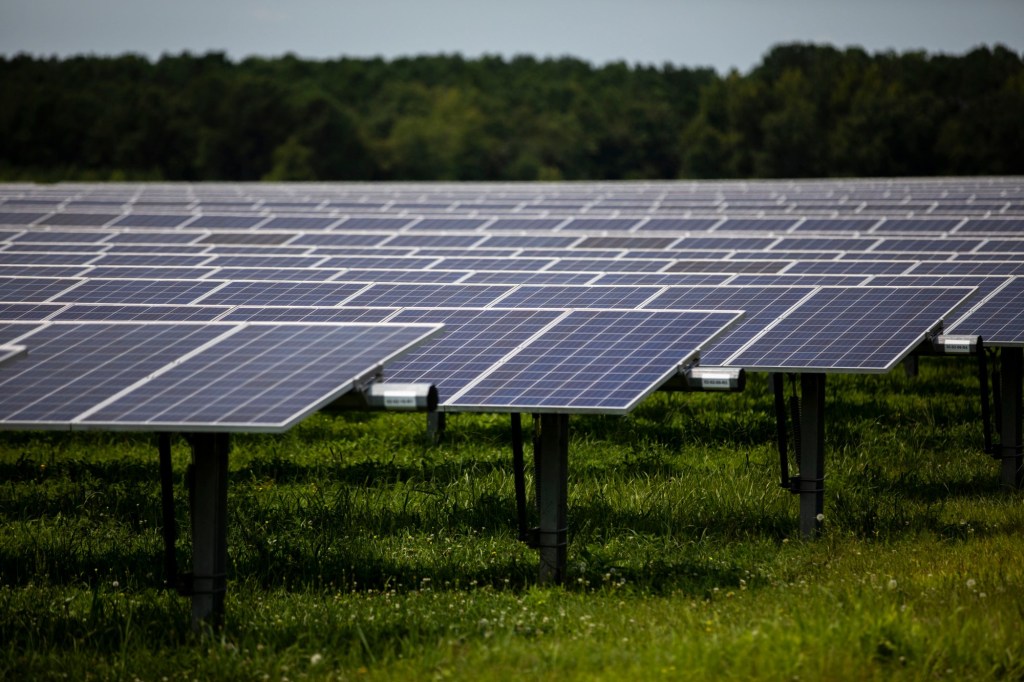As the U.S. Senate prepares to review the potentially transformative tax cut bill, concerns are mounting in Virginia over the future of clean energy projects. Environmental advocates fear that the proposed changes could strip away crucial tax credits, impacting the state’s renewable energy sector.
Blair St. Ledger-Olson from the Virginia League of Conservation Voters warned that the bill could deliver “a serious blow” to Hampton Roads’ economic prospects. She stated, “Rolling these tax credits back harms the region’s opportunity to be an anchor in the offshore wind supply chain, revitalize our port infrastructure and be a national leader in the clean energy transition, not to mention threatening the environmental progress we’ve fought so hard to achieve.”
The House recently passed the One Big Beautiful Bill Act, aimed at repealing or altering clean energy tax incentives from the 2022 Inflation Reduction Act (IRA). This legislation, championed during former President Joe Biden’s administration, was pivotal in promoting renewable energy through incentives for projects like wind and solar.
Dominion Energy’s Coastal Virginia Offshore Wind project is among those potentially affected. This 2.6-gigawatt development, located off Virginia Beach, could benefit from the IRA’s 30% tax credit designed for offshore wind initiatives starting construction before 2026. The project’s cost has surged from $9.8 billion to $10.7 billion, with tariffs possibly adding $500 million more. Dominion Energy spokesperson Jeremy Slayton noted that restoring these credits would “substantially lower costs” for consumers.

The fate of solar projects remains uncertain. Robin Dutta of the Chesapeake Solar and Storage Association explained that only projects already under construction or starting soon after the bill’s enactment and completed by 2028 may qualify for the Investment Tax Credit. Residential solar projects funded through leases, popular in Virginia, would be excluded from these credits if the bill passes as is.
Dutta highlighted that delays in zoning approvals and utility interconnection studies put many larger projects at risk, potentially impacting jobs in business development and sales once current projects are completed.
However, LS Greenlink USA’s undersea cable plant in Chesapeake remains unaffected by these potential cuts. The facility benefits from 48C credits, part of the Qualifying Advanced Energy Project Credit, which are secure under the new bill. Patrick Shim of LS Cable and System emphasized the stability of these credits, noting their expansion under the IRA.

The U.S. Department of Energy describes 48C as “a tax credit for investments in advanced energy projects … and is intended to build clean energy supply chains, drive investments and lower costs in energy communities.”
The Port of Virginia is set to receive $380 million from the IRA to transition to electric equipment, aiming to eliminate emissions by 2040. However, the Port’s involvement with IRA tax credits remains unconfirmed.
While Democrats express concern over the bill’s broader implications, including cuts to social services, some Republicans have also voiced opposition to the energy tax credit reductions. Rep. Jen Kiggans, representing Virginia Beach, supports the bill but acknowledges its imperfections, particularly regarding renewable energy funding.
In a letter, Senators Lisa Murkowski, John Curtis, Thom Tillis, and Jerry Moran urged Senate leaders to reconsider the tax credit cuts, citing potential disruptions in investment and job creation.
Virginia Senators Mark Warner and Tim Kaine echoed these concerns, warning that the House bill could hinder economic growth and sustainability efforts. They emphasized the importance of safeguarding investments that foster job creation and lower energy costs for state residents.
Original Story at www.dailypress.com
